A lot of people, yes white ones [like me], switch off when we hear the term ‘white privilege’ [please don’t!]
Some people, yes white ones, get angry when we hear the term ‘white privilege’ [please don’t!]
But i sometimes wonder if it is because of a misunderstanding of what people who talk about ‘white privilege’ mean when they do so.
So please take a deep breath and try and approach this piece with fresh eyes [forget what you think white privilege is and see if what i am suggesting it might be is something worth engaging with] knowing that this will at the very most scrape the top of what is a deep and wide barrel. Because i am a white male and live in South Africa i believe it is essential for me to try and understand something of this description of ‘white privilege’ that follows.
So let’s look at a couple of official definitions:
White privilege (or white skin privilege) is the set of societal privileges that white people benefit from beyond those commonly experienced by people of color in the same social, political, or economic spaces (nation, community, workplace, income, etc.). [Wikipedia]
White privilege has been defined as unearned advantages of being White in a racially stratified society, and has been characterized as an expression of institutional power that is largely unacknowledged by most White individuals [Neville, Worthington, & Spanierman, 2001]
I feel like the term and the idea of ‘White Privilege’ is one that is too complex to explain simply, but at the same time, that it is really helpful that we try to come to at least some understanding…
I feel like this cartoon does a good job of depicting the problem. People who benefit from ‘White Privilege’tend to have an easier path through life or some area or aspect of life, whereas those who are not white have the odds stacked against them to varying degrees and extents. When you are a circle and have made it easily through a hole that is circular, you tend to expect things to be as easy for everyone else, not necessarily noticing or realising what the same task might mean to someone of a different shape.
i asked some people for their definitions or understandings of ‘White Privilege’ and this is what they said:
Andrew Enslin: I see white privilege as the belief that 20 years of a 60/40 relationship makes up for over 40 years of apartheid.
Alexa Russell Matthews: White Priv Def: The things in life that I only know I have once i realise that my friends of different colours don’t assume that they have, or have a reaction to which my peers and I don’t always understand…
Susannah Prinz: this probably won’t work in the context where you are now and it’s not the exact question you are asking, but since you were just in this fair city i’ll share anyway: one easy example that sums up my white privilege? even though i am in the ethnic minority on the street/neighborhood where i live (being white), i can fairly assume that if i ever break minor traffic, etc laws, i will not get a second glance from a police officer…much less be pulled over, harassed, ticketed or worse. why do i think that? not from my car- which is old. not from my flawless driving- because i drive way too east oakland around here. simply because i am a white woman. (and in addition, i have absolutely *no* fear that i would be pulled over or stopped by a law officer without legitimate reason.) i could list a lot more reasons, but that’s one that instantly comes to mind.
Lara Harler Lahr: System if advantage based on race
Gayle Evers: White privilege is like being right-handed. You live in a world subtly and not-so-subtly geared to accommodate your needs, while completely ignoring the existence of others.
If you have a bit of time to dig a little deeper into this, then i would encourage you to read these three articles that came out of Stanford which look at the same concept from very different sides that i shared a little about in my post titled, ‘I will not apologise for my white privilege’ a while ago.
For those who have less time, this cartoon will give some idea of one clear way in which ‘White Privilege’ manifests in the world today.
I saw a similiar idea demonstrated on a picture that read, ‘If we discover that the Boston Bomber is white, no-one is going to go around saying, ‘All whites are terrorists.’ White Privilege.
Or perhaps this one shows it even more blatantly:
The language we [and the media] use to describe events can demonstrate the effects of ‘White Privilege’ on a nation. The guy with ‘White Privilege’ is described as ‘misunderstood’ despite the horrific things he did, whereas the black guy is described as a criminal despite the horrific things that were done to him. If you change the pictures across and attribute the opposite thing to each person, then just imagine what description will be used to describe what went down.
White Privilege. Knowing you will be treated better, viewed better, granted less or no suspicion, given the benefit of the doubt…
It is so important for us white people to realise that as the big fish in this picture, we are more likely to view the world as a just place, because we don’t experience the same things that those without the privilege do. We might also be guilty of minimalising the genuine concerns/grievances of those without the privilege we have, by comparing things which are not equal to begin with, like in this picture:
The point of ‘White Privilege’ is that you started with a loaded deck. The playing fields between myself as a white person and the majority of black people did not start level.
By being born into the family i was, i gained privilege.
By living in the area i live, i gained privilege.
By going to the school i was able to go to, i gained privilege.
And so on…
Admitting to White Privilege is not saying that i was personally responsible for apartheid and need to feel bad about that for the rest of my life. It is acknowledging that because i was born at the time i was born, when apartheid was still rampant in South Africa, that i had an easier passage through life in many respects [at least in terms of opportunities and treatment].
This blog post by Manic Pixie Dream Mama, written in the aftermath of the Ferguson chaos that resulted after a young black man [Mike Brown, see above] was shot, is worth taking a read of as i think she explains it really well:
To admit white privilege is to admit a stake, however small, in ongoing injustice. It’s to see a world different than your previous perception. Acknowledging that your own group enjoys social and economic benefits of systemic racism is frightening and uncomfortable. It leads to hard questions of conscience may of us aren’t prepared to face. There is substantial anger: at oneself, at the systems of oppression, and mostly at the bearer of bad news, a convenient target of displacement. But think on this.
She goes on to list a number of things her young white sons will get to do or be when they grow up [with links to actual stories of where black youth were involved and it went the other way] and some of those include the following [As a helpful exercise, why don’t you read this list out loud to yourself, saying the phrase ‘White Privilege’ after each one]:
Clerks do not follow my sons around the store, presuming they might steal something.
Their normal kid stuff – tantrums, running, shouting – these are chalked up to being children, not to being non-white.
People do not assume that, with three children, I am scheming to cheat the welfare system.
When I wrap them on my back, no one thinks I’m going native, or that I must be from somewhere else.
When my sons are teenagers, I will not worry about them leaving the house. I will worry – that they’ll crash the car, or impregnate a girl, or engage in the same stupidness endemic to teenagers everywhere.
They will walk together, all three, through our suburban neighborhood. People will think, Look at those kids out for a walk. They will not think, Look at those punks casing the joint.
People will assume they are intelligent. No one will say they are “well-spoken” when they break out SAT words. Women will not cross the street when they see them. Nor will they clutch their purses tighter.
My boys can grow their hair long, and no one will assume it’s a political statement.
No one will stop and frisk my boys because they look suspicious.
She ends her post with three lines that flip this whole thing on its head. And while this is a story specific to Americaland, there is enough of an overlap for us to learn its lessons here as well:
For a mother, white privilege means your heart doesn’t hit your throat when your kids walk out the door. It means you don’t worry that the cops will shoot your sons.
It carries another burden instead. White privilege means that if you don’t school your sons about it, if you don’t insist on its reality and call out oppression, your sons may become something terrifying.
Your sons may become the shooters.
i’m not sure i’ve done a great job in unpacking what ‘White Privilege’ is, but hopefully this will give some of us some more stuff to think about. i am hoping that one or two other friends of mine will write their own piece so that we can engage and learn together.
If hearing the phrase ‘White Privilege’ makes you angry or frustrated and you want to respond by blocking your ears or running away or starting an argument, take a moment and ask yourself why that is. Is it because the conversations on ‘White Privilege’ should really not be happening? Or is it possibly because of the realisation that if this stuff is true, then there is still a lot more work to be done. Don’t be like the toilet door people.
[To hear from someone outside South Africa’s perspective on White Privilege, click here]
[here are some other excellent posts i have been reading on this topic]

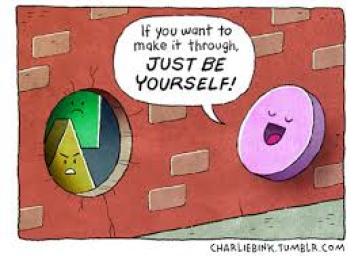
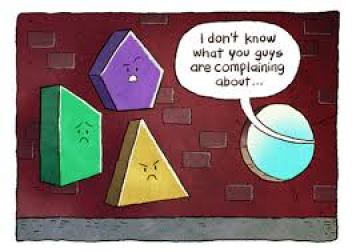
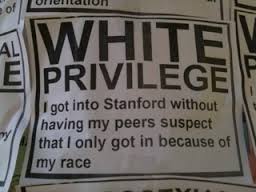
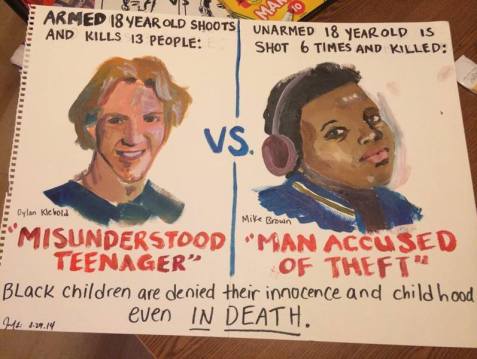
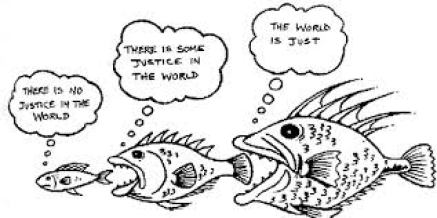
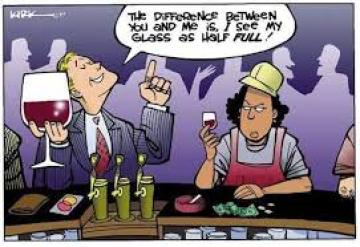

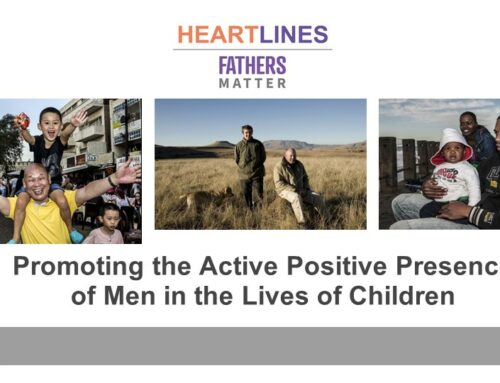


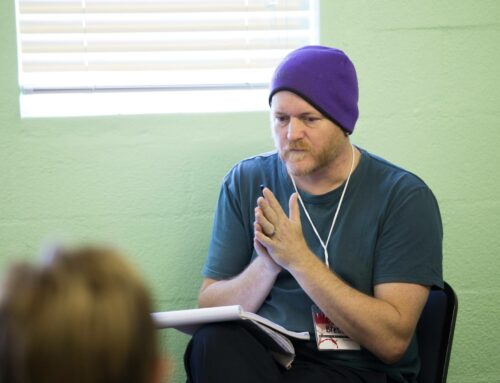

[…] WHITE PRIVILEGE – i take a closer look at the idea and issues related to ‘White Privilege’ and invite your engagement. […]
Dear Brett, this is your best post ever. I respect the calm, clear and unemotional way you have broached the subject, and the depth of your analysis. I would have been a lot bolder. I find white privilege so entrenched, and the arguments against the idea so outrageous it makes me want to scream. I really believe that whites (all over the world, and in SA in particular) who accept white privilege will find it so much easier to understand black anger. And will understand it without being paranoid or taking it personally. Thank you again for this simple, clear post.
Wow, thankx Megs. High praise from you means a whole lot. If you would like to be bolder, i am certainly looking for guest posts on this topic. Or perhaps you might have someone of colour in mind who might be up to writing their version from the other side?
[…] writing a piece on White Privilege for my blog, i have been doing a lot of reading up on articles and posts relating to the whole Ferguson […]
This is a very insightful and interesting commentary on the subject. Thanks for writing this post.
Thank you for stopping by. Appreciate the encouragement! Keep on.
love brett fish
As a black person I am realy shocked that there are white ppl who think like this. I say this because as an architecture student we have to deal with a lot of informal settlments projects and almost all my white peers react the same way towards the situation which is ” they must get up on their asses and work and stop relying on the government for handouts”. I am in no way condoning handouts but I feel that they(white peers) do not understand the full story behind what is truly going on in “black anger”
Thanks for stopping by Brian. Would you like to write something on White Privilege? Drop me an email and we can chat – brettfish@hotmail.com – definitely want to create space for voices on both sides of it… telling our stories is hopefully just a first step towards healing and true reconciliation.
[…] research was because i have been wanting to write a piece on White Privilege for a while now, which i finally got around to over here. People are reading it and more importantly SHARING it around and i am hoping that more people will […]
Hi Brett,
This was a really well written, well thought out piece. Like Brian, I also didn’t realise that there were white people who actually realised that “white privilege” is real. Thank you so much for this.
Absolutely Khanyisa, it does seem like there are not enough though.
I get it about white privilege. I do. It’s a fact. I am also tall so I benefit from that according to sociology studies. I’m also educated and an attractive blonde woman. I have been married to the same man for fifty years and have lived a life of responsible behavior. I collect benefits from so many sources that it clearly isn’t a level playing field. And such is life. Am I guilty of something? Probably. Are those who resent me and my comfortable life guilty of something? Certainly. They haven’t a clue about what I do, the prisoner I write and support, the charity work I do, the woman in Central America I support to keep her out of the sex trade. Oh, the weariness of simplistic thinking, of quick and knee-jerk judgments. However, the exchange of ideas may be productive if compassion, generosity and a goal of wisdom pervades our exchanges. I’m at a stage in life where friends and parents are dying; white privilege isn’t such a big deal to me as it is to others as I’ve been aware of social inequity for decades. May wisdom reign somehow somewhere for some who have ears to hear and hearts that are tender.
Thankx for stopping by and commenting Pam – i think a lot of people hear White Privilege and jump to the guilt narrative, but it doesn’t have to be that – more being aware of how systems and attitudes are so that together [and it has to be together] we can circumvent them and hopefully bring them down or see them dramatically transformed…
Great post!! Manic Pixie’s post is so relevant and insightful. Thank you for sharing the truth in wisdom and respect.
[…] those were not the only comments as a response to me, a white male, writing some thoughts on White Privilege, suggesting that it is a thing and that we have to own it and then work together to counteract it […]
[…] Some thoughts i [and others] had on White Privilege – Such an important part of the conversation and a difficult one for whites to seem to admit to or even realise. […]
[…] people [especially white people] who don’t understand what ‘White Privilege’ really means and refuse to engage with it and learn from those who are speaking about […]
I suppose this is the same as trying to adapt the whole world for the deaf or blind? Why are all books not in braille? Why don’t we all speak sign language? If blacks are disadvantaged, then who is to blame? Is it always whites? Isn’t this unfair to say?
I think the point isn’t about blame but knowledge like he’s stated. The issue isn’t what punishment we dole out for injustices, it’s what knowledge can we share to try and change how things are done.
I know since learning about this (even now it sounds strange that my obvious privilege had to be taught to me) it has made me a more understanding and less judgmental person. So often you hear comments as simple as ‘if I could do it, why couldn’t that person?’ There is a whole system in place for why that person couldn’t that people don’t see.
i don’t think it is quite the same thing at all. and it is not so much about blame as awareness, realising that with the current state of affairs, as a white person i start on an uneven playing field on which i have the higher ground in terms of opportunity and various other things [parents of white guy walking through a neighborhood have a lot less fear than parents of black guy because of how they are viewed by society at large and the police etc]
If you look at history, whites have flourished more than any other group. Do you think that the reason for inequality is because the wheel was not even in Southern Africa when Europeans arrived with ships. There was about a 3000 – 5000 year gap in technology. They have been playing catch-up ever since it seems. Even today, some things are difficult to teach black people. Is there truth to this? Is there an IQ difference as some studies suggest?
http://en.wikipedia.org/wiki/Race_and_intelligence
i suspect the point you might be hinting at here might be a racist one? There is a lot to do with power dynamics and systems and a lot less to do with IQ and some things being “difficult to teach to black people” and the article you linked to is full of ‘disputed facts and evidence’ so not sure that is going to be the most helpful.
Is it possible that the common denominator is IQ? Sure there are some super clever blacks and whites, but if you look at the general trend, is IQ a big factor among race groups? I am white, but many studies claim that Asians have the highest IQ, followed by whites and then blacks.
i don’t think IQ and cleverness are related. i’m also a little dubious as to the exactness of the ‘science’ of IQ having taken the MENSA test in South Africa [exceptional IQ people] and passed [as did everyone except two of the people i took it with which was really strange until they started asking for monthly fees to be part of the club and then it all made a lot more sense] – IQ tests only measure a certain area of intelligence and so someone with a high IQ might be better at puzzle-solving than the next person but not able to fix a blocked toilet or conjur up an incredible meal or create a turbine engine? Does that make the IQ guy more clever? I don’t believe so. It makes him better at taking a certain type of test, which incidentally is the same kind of test that i seem to be pretty good at.
IQ, resourcefulness, thinking out the box or simple perseverance. Perhaps there is something inherent in a ship faring culture such as Europeans that we don’t find in African cultures?
You’ve missed the point. I think an equivalent might be a sighted person taking the position that blind people should learn to see rather than owning that they, the sighted person, are in a privileged position and that actions should, in fact, be taken to assist the blind in a world generally designed around those who can see. Or taking the position that we shouldn’t have to build wheelchair ramps, but rather that people in wheelchairs should learn to get their chairs up the stairs. It’s taking the position that the world should revolve around those of us who are privileged precisely because we’re unaware, except perhaps in an abstract, intellectual sort of way, that we are privileged. And because we’re blind to it, we end up viewing the world in a way that has us think it’s right that others should just buck up and sort themselves out.
While the point is not who to blame, it is difficult to deny that white people carry a massive responsibility for the situation because a lot of it was created by white people over a long period. In South Africa we can, to some extent, point the finger at the government for some of the lack of progress, but that doesn’t cover all that much ground. It certainly doesn’t cover nearly as much ground as we like to think. That’s far closer to the point of the article – to most whites, white privilege is invisible, so all we see is the impact of the actions (or inaction) of others. And not other whites, because their white privilege is invisible to us too.
Thanks Jiminy, perfect analogy and such a clear way of expressing the point. Thanks for stopping by.
[…] space on my blog have been written by other people so far, and why a lot of my thought on ‘White Privilege’ were informed by the situations around us in […]
Brett, are black people free in SA? Even though there is democracy, are they free? What is freedom? There are examples of black entrepreneurs making millions even while oppressed. Look at the people of Israel and their journey to freedom, they struggled to embrace their freedom. I believe people need to be educated about freedom and what that means and the responsibilities it entails. People who have been oppressed for decades cannot live freedom in 20 years of democracy.
Hi Hermann, thanks for stopping by. I’m not sure what you mean by free. We would probably need to figure that out first. I imagine we could say some are and some are not. But yes, I think people on all sides could use some education and just more conversation even. We do have a long walk still to freedom.
Hi Brett. My point exactly. What is freedom and what does it mean to be free? I have worked in squatter camps since 1996. Some people get freedom and grow out of poverty, some stay oppressed and I believe the 14 African countries I have worked in, I see the same tendencies. People need to be educated about freedom. The Biblical story of Israel is a great case study of how oppressed people respond to freedom.
The issue with the discussion about white privilege is that it’s an attack. The problem is you. The problem is your privilege. Additionally, it’s inherently biased. Only you have privilege and only your privilege is the problem. The rest of people either don’t have privileges or are morally better people who don’t misuse their privilege.
There used to be an idea that talked about this situation and didn’t make personal attacks in doing so. It’s called the Just-world fallacy. Just-world fallacy points out that this is a common logical fallacy made by all humans. It’s not just you, it’s all of us.
The problem isn’t that the circle has it easier. (and this is why privilege becomes such a dangerous way to have the conversation) Someone will always have it easier. Whether that’s intelligence, class, disability, native language, whatever. There will always be someone who has some privilege, and privilege changes with context. Black men have privileges over white women because they’re men. White women have privileges over black men because they’re white.
The problem is when you believe the extra difficulty experienced by someone without privilege has that difficulty because of their choices. This is the just-world fallacy. We all do it.
I’m not so sure it’s an attack as an observation or realization. Speaking as the person with privilege removes a huge deal of that from the conversation I imagine. And just because someone always had it easier does not mean we need to refuse to look at our privilege critically, especially when it was gained by less than desirable method and hopefully decide to be part of the reconciliation and reparation that is necessary. Really interesting point about the black man and the white woman and how different aspects of privilege have different effect or maybe strength of priority. This is not a simple conversation or matter for sure. But it definitely requires dialogue and action.
This is superb! I’m astonished!!!!! Thankyou so much Brett!!!!
Ah wow, high praise coming from you. Thanks for stopping by Nkosi, and glad you liked it.
[…] [For the piece i wrote on Whit Privilege, click here] […]
[…] Fish has some great conversations about white privilege happening over at his blog, you should definitely check it out! One of the big things that is […]
[…] Firstly, Brett “Fish” Anderson defines white privilege at his post: i’m not sure you’re against that thing you think you’re against: white privilege. […]
[…] Firstly, Brett “Fish” Anderson defines white privilege at his post: i’m not sure you’re against that thing you think you’re against: white privilege. […]
[…] you’re against that thing you think you’re against, where i looked at Rape Culture and White Privilege as two examples of this. Both of these are such important ongoing conversations to be having and […]
[…] [To see some of the posts we put together on ‘White Privilege’ click here] […]
[…] ‘White Privilege’ for example – i wrote some thoughts about this in a post titled ‘i’m not sure you’re against that thing you’re against’ simply because i believe the word has certain baggage which triggers a reaction, whereas if those […]
[…] don’t think you understand White Privilege as well as you think you do…maybe read up on what it actually means a bit […]
[…] up as the generation who wasn’t around for apartheid. But that is where an acknowledgement of White Privilege comes into play. Not that you particularly did anything to create the difference, but that you […]
[…] alongside and cheering on as opposed to spearheading or directing. As a person who recognises the privilege i carry simply by being a white male, i can use that privilege as a resource to offer those who […]
[…] reaction before they take the time to really hear what we are talking about [and often have a completely different understanding of the term and idea than the one we are talking about] and it is so confusing for me to see conversations end before they have even begun. Ask the […]
[…] a white person, what questions do you have with regards to figuring out white fragility or privilege or how to be a better ally to your friends of […]
[…] us are tired of trying to do this and frustrated with attempts at helping white people understand ‘white privilege’ and unpacking the absence of any kind of ‘white guilt’ and some have given up and […]
[…] to get people to think and listen and learn and change when it comes to difficult topics like Race, Privilege, Poverty and Language among others, it is SO GOOD to know that there are SO MANY PEOPLE standing in […]
[…] sought to do that – probably the majority of the posts i have shared about South Africa and Privilege have been written by other […]
[…] has to say about ‘White Privilege’ head over here to read his post “I’m not sure you’re against that thing you think you’re against.” Brett blogs at: Irresistibly […]
[…] has to say about ‘White Privilege’ head over here to read his post “I’m not sure you’re against that thing you think you’re against.” Brett blogs at: Irresistibly […]
[…] https://brettfish.co.za/…/im-not-sure-youre-against-that-t…/ […]